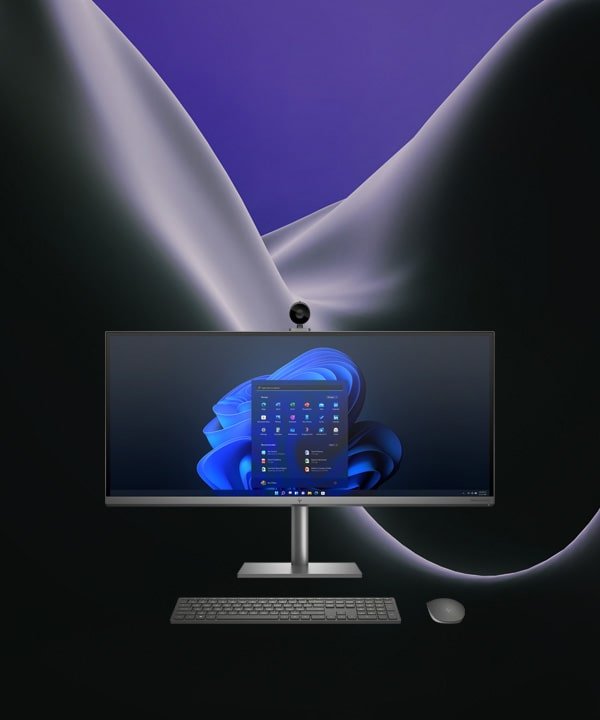As technology evolves at an unprecedented rate, the computer industry is constantly advancing to keep up with new demands. From cutting-edge processors to innovative form factors, the future of computing looks brighter than ever. In this article, we’ll explore the latest trends shaping the world of computers and what businesses and consumers can expect in the coming years.
1. The Rise of Quantum Computing
Quantum computing is no longer just a concept confined to research labs. Major tech companies such as Google, IBM, and Microsoft are investing heavily in this revolutionary technology. Unlike classical computers that process information in binary (0s and 1s), quantum computers use qubits, which can represent both 0 and 1 simultaneously, making computations exponentially faster.
- Why It Matters: Quantum computing will revolutionize fields like cryptography, drug discovery, and climate modeling by solving problems that were once considered unsolvable. While we’re still in the early stages, businesses should start preparing for the profound impact this technology will have on industries in the next decade.
2. AI-Powered PCs
Artificial intelligence (AI) has already infiltrated many aspects of computing, but we are now seeing the rise of AI-powered PCs. These machines use integrated AI processors to enhance performance, optimize energy use, and even improve user experience by learning patterns over time.
- Why It Matters: AI chips in computers can automate routine tasks, enhance cybersecurity by detecting anomalies, and offer personalized experiences to users. Businesses that adopt AI-powered PCs will benefit from greater efficiency and security, while consumers will enjoy smarter, more intuitive devices.
3. Foldable and Modular Designs
The future of computer design is all about flexibility. We’ve already seen smartphones with foldable screens, but now foldable laptops and modular desktops are becoming more prevalent. These designs allow users to adjust their devices based on their needs, whether it’s a larger screen for multitasking or additional components for better performance.
- Why It Matters: The ability to fold or modify your computer opens up new possibilities for productivity, mobility, and customization. For businesses, modular computers offer an easy way to upgrade components without having to replace entire systems, saving costs and reducing waste.
4. The Edge Computing Boom
With the increasing adoption of the Internet of Things (IoT), edge computing is becoming essential. Instead of sending all data to a central server, edge computing allows data to be processed locally, near the source of data generation. This reduces latency and improves real-time decision-making.
- Why It Matters: Edge computing is especially valuable for industries like manufacturing, healthcare, and autonomous vehicles, where real-time processing is critical. As more devices become connected, businesses that integrate edge computing will enjoy faster processing speeds and more efficient operations.
5. Energy-Efficient Computing
As climate change becomes a pressing global issue, the tech industry is focusing more on energy-efficient computing. From CPUs designed to consume less power to renewable energy-powered data centers, the emphasis on sustainability is driving innovation in the computer industry.
- Why It Matters: Businesses and consumers alike are looking for eco-friendly tech solutions. Computers that prioritize energy efficiency not only reduce operational costs but also contribute to reducing carbon footprints. Expect to see more devices that are built with sustainable materials and designed to conserve energy.
6. 5G Connectivity and Cloud Computing
The rollout of 5G networks is unlocking new possibilities for cloud computing and remote work. With faster speeds and lower latency, 5G enables seamless connectivity between computers and the cloud, making it easier to access and process data from anywhere in the world.
- Why It Matters: For businesses, 5G means faster collaboration, enhanced video conferencing, and the ability to run more complex applications remotely. This trend is paving the way for a future where physical location no longer limits productivity.
7. Virtual and Augmented Reality (VR/AR)
The integration of virtual reality (VR) and augmented reality (AR) in computing is set to redefine how we interact with digital environments. These technologies are finding applications in everything from training simulations to remote collaboration, and the hardware to support them is becoming more advanced and accessible.
- Why It Matters: The future of work may include VR meetings, AR-enhanced design processes, and immersive educational experiences. As computers become more powerful, expect to see more industries adopting VR/AR as part of their daily operations.
Conclusion
The computer industry is on the verge of a major transformation, driven by innovations like quantum computing, AI, and edge computing. As these technologies mature, both businesses and consumers will experience faster, more flexible, and smarter computing. Staying ahead of these trends will be key for companies looking to remain competitive in a rapidly evolving digital landscape.
By embracing these tech trends, businesses can not only improve productivity and efficiency but also position themselves at the forefront of the next technological revolution.



